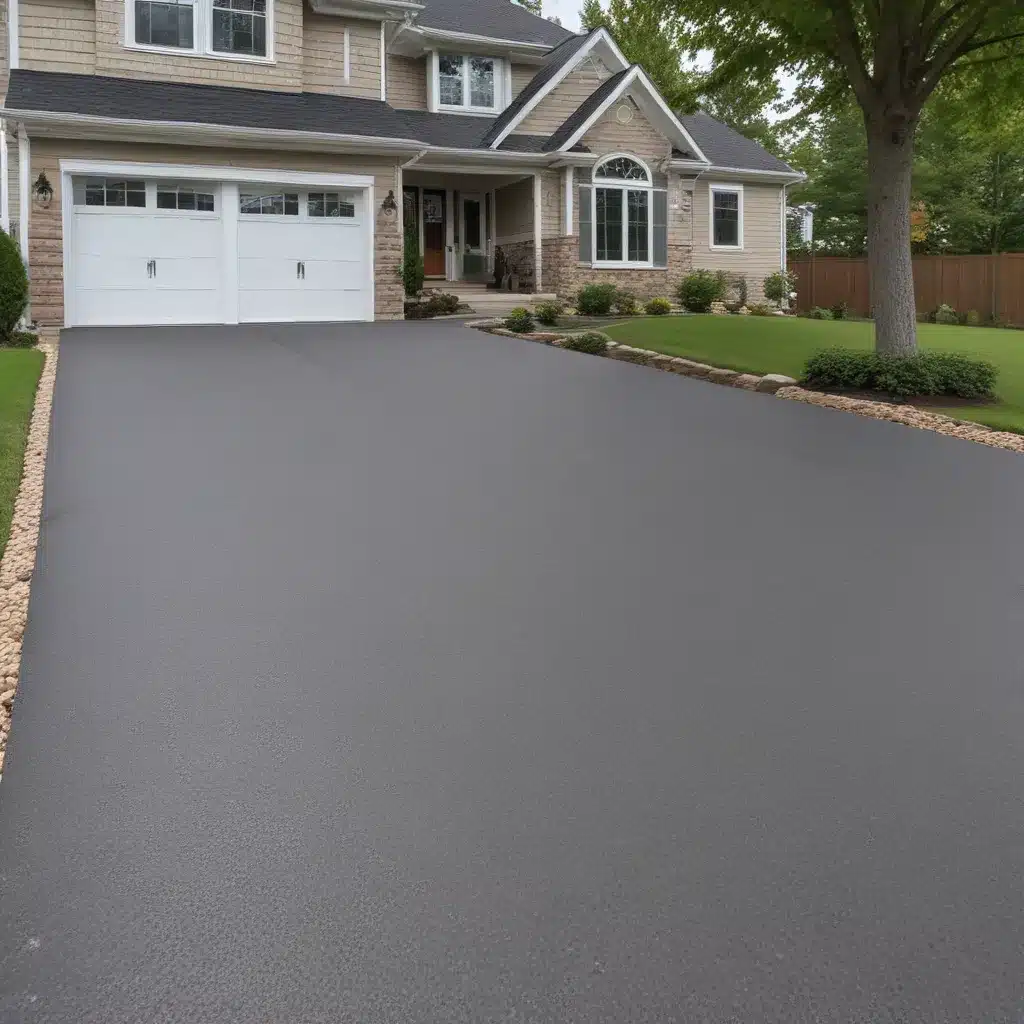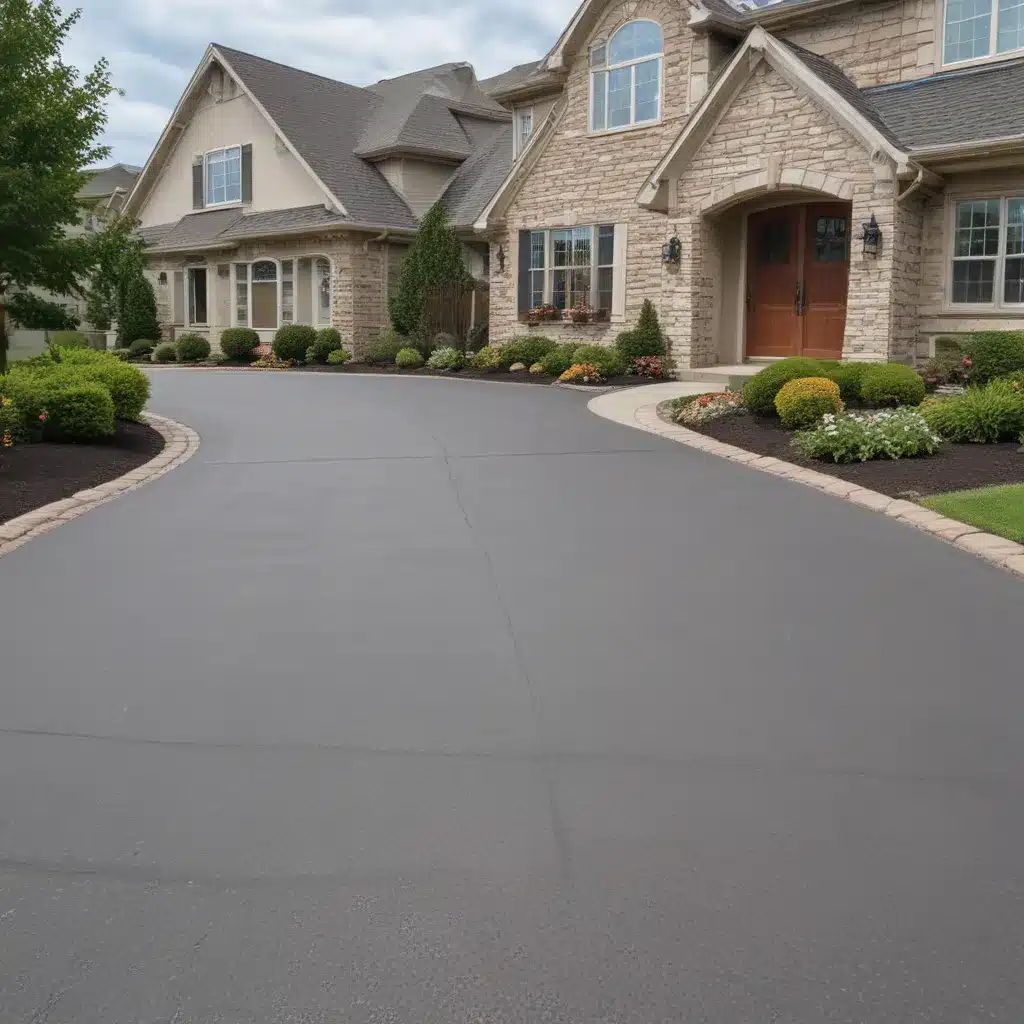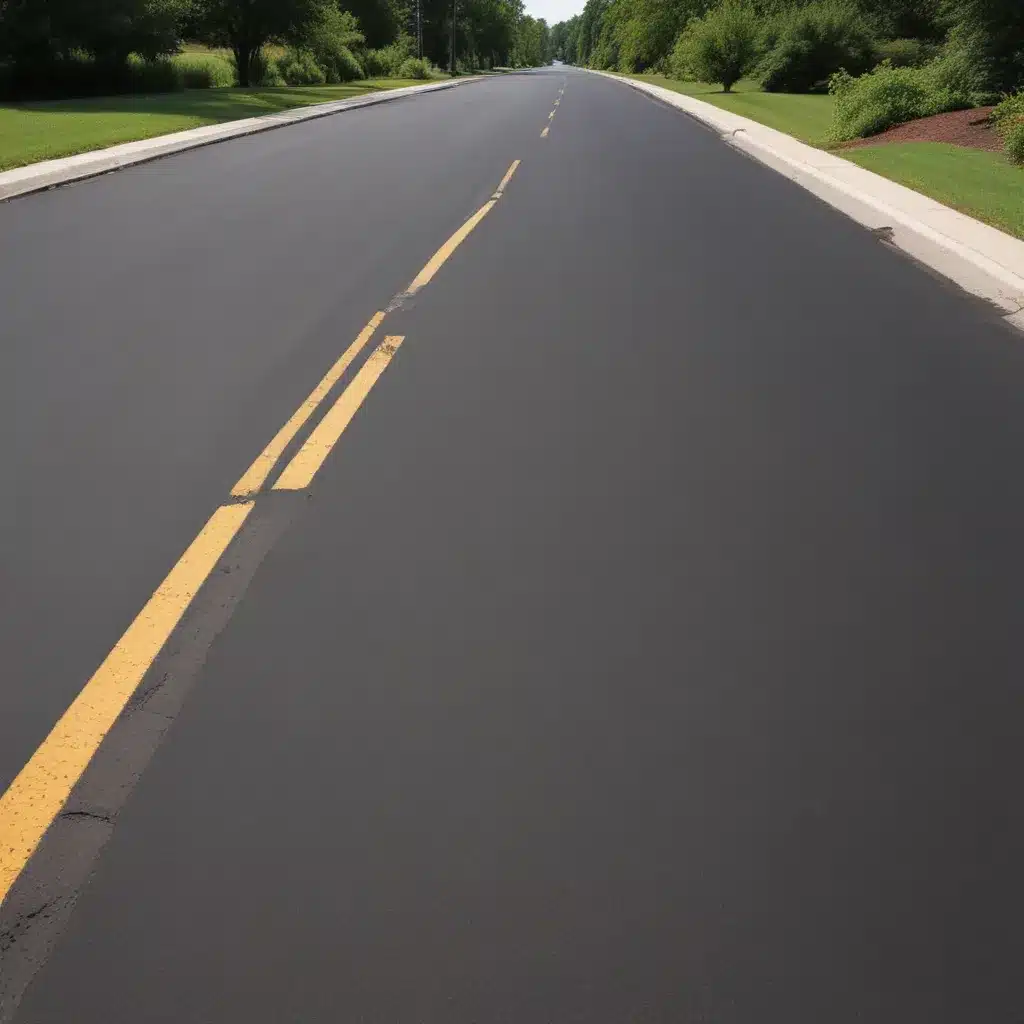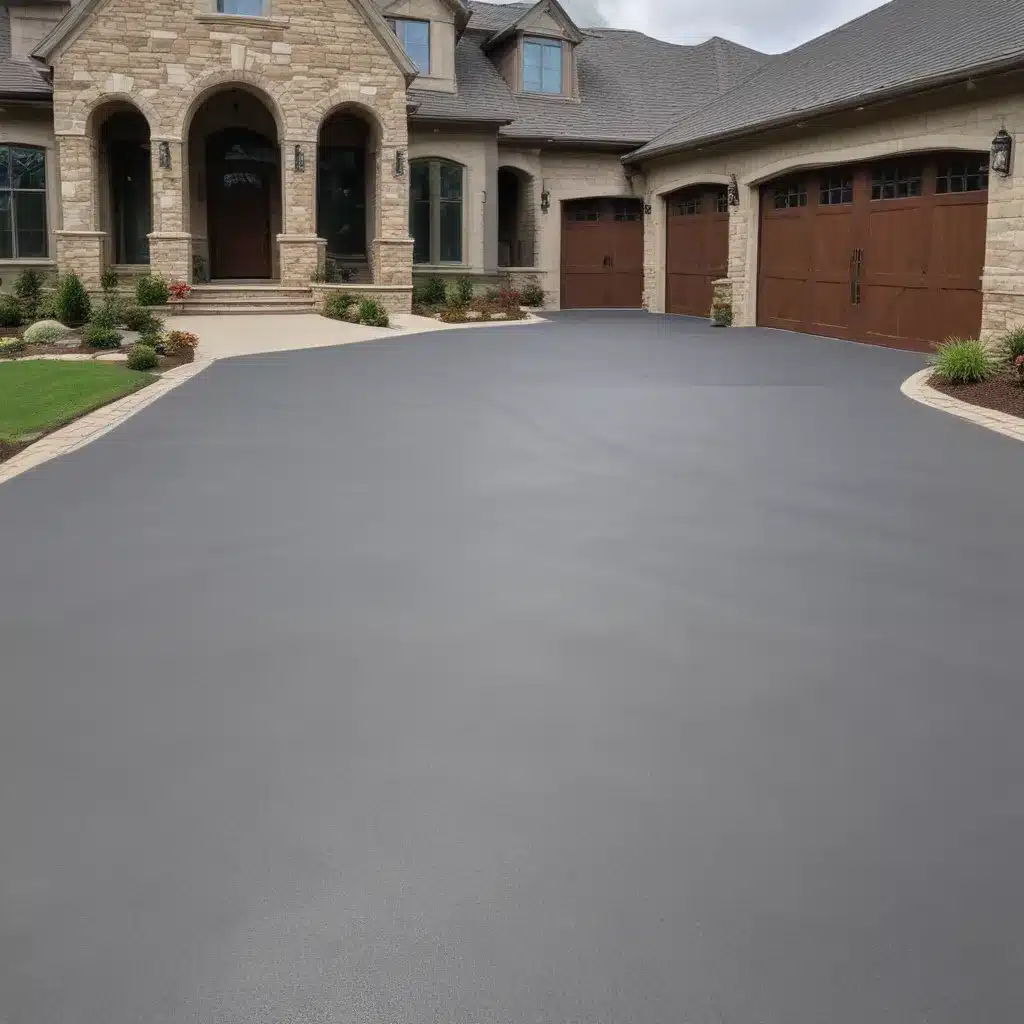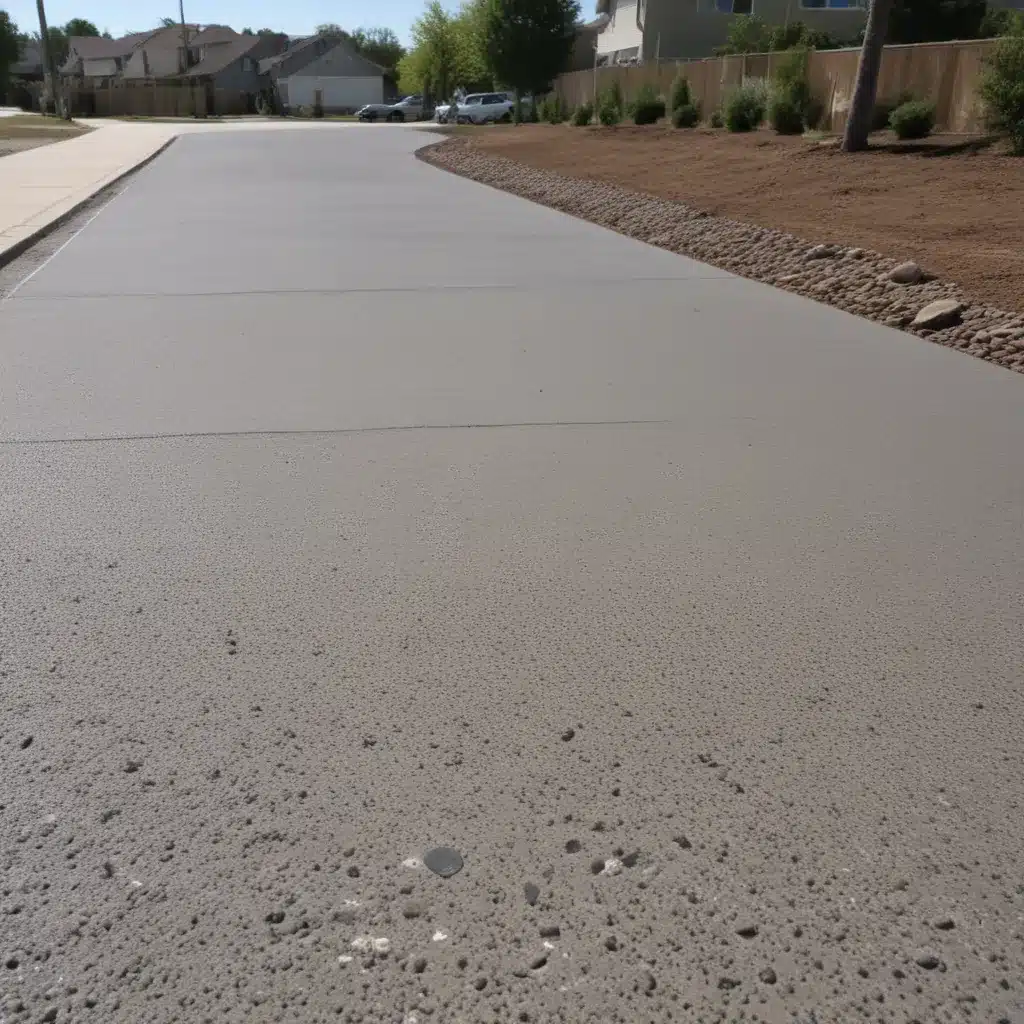The Paving Predicament: Choosing the Right Driveway Material
As the owner of a driveway services company, I’ve seen my fair share of paving projects over the years. One question that seems to come up time and time again is, “What’s the best material for a low-maintenance driveway?” It’s a valid concern – after all, who wants to be out there with a shovel and a bucket of sealant every other weekend? Not this guy, that’s for sure.
Well, fear not, my driveway-owning friends. I’m about to take you on a deep dive into the world of paving materials, exploring the pros and cons of each option so that you can make an informed decision. Get ready to bid farewell to those high-maintenance driveways and hello to a smooth, hassle-free future.
Concrete: The Reliable Classic
Let’s start with the stalwart of the driveway world – concrete. This stuff has been around for centuries, and for good reason. It’s durable, long-lasting, and requires relatively little maintenance compared to some other options.
One of the biggest advantages of concrete is its longevity. When properly installed and cared for, a concrete driveway can easily last 30-40 years or more. That’s a lot of time between major renovations, which is music to the ears of any homeowner who doesn’t want to be constantly tinkering with their outdoor spaces.
And let’s not forget the versatility of concrete. These days, you can choose from a wide range of finishes and colors to suit your home’s aesthetic. Want a sleek, modern look? Go for a smooth, polished finish. Prefer something a little more rustic? Stamped concrete can give you the appearance of brick, stone, or even wood.
Of course, no material is perfect, and concrete does have its drawbacks. For one, the installation process can be time-consuming and labor-intensive, which can translate to a higher upfront cost. And while concrete is generally low-maintenance, it’s not completely immune to cracks and chips over time.
But overall, if you’re looking for a durable, long-lasting driveway material that won’t keep you glued to the repair tools, concrete is definitely worth a closer look.
Asphalt: The Smooth Operator
Next up, we have asphalt – the dark horse of the driveway world. While it may not have the same level of prestige as its concrete counterpart, asphalt is a solid choice for those seeking a low-maintenance option.
One of the biggest advantages of asphalt is its smooth, seamless appearance. There’s just something about that glossy, black surface that screams “high-end.” And let’s not forget the practical benefits – the smooth finish makes it a breeze to navigate, especially for those with larger vehicles or trailers.
But don’t let the sleek looks fool you – asphalt is also a highly durable material. When properly installed and maintained, an asphalt driveway can easily last 15-20 years, with minimal upkeep required along the way. And if you do need to make a repair, the process is relatively straightforward and cost-effective.
Of course, as with any material, there are a few downsides to consider. Asphalt can be susceptible to cracking and fading over time, especially in areas with extreme temperature fluctuations. And while the installation process is generally quicker and less labor-intensive than concrete, the initial cost can still be a significant investment.
Still, if you’re looking for a smooth, low-maintenance driveway option that won’t break the bank, asphalt is definitely worth a closer look.
Pavers: The Customizable Champ
Now, let’s talk about a material that’s been gaining some serious traction in the driveway world: pavers. These interlocking blocks come in a wide variety of shapes, sizes, and colors, making them a highly customizable option for the style-conscious homeowner.
One of the biggest advantages of pavers is their versatility. Whether you’re going for a classic brick look, a modern stone aesthetic, or something entirely unique, there’s a paver option out there to suit your vision. And the best part? You can mix and match different styles to create truly one-of-a-kind designs.
But it’s not just the looks that make pavers a great choice – they’re also incredibly durable and low-maintenance. Unlike concrete or asphalt, which can crack and crumble over time, pavers are designed to shift and flex with the soil, reducing the risk of damage from things like freeze-thaw cycles or heavy loads.
And if a paver does happen to get damaged, the repair process is a breeze. Simply pop out the affected block and replace it with a new one. No messy patching or extensive resurfacing required.
Of course, pavers do come with a few downsides to consider. The installation process can be more complex and time-consuming than other driveway materials, which can translate to a higher upfront cost. And if you’re not careful with the installation, you could end up with an uneven surface that’s a nightmare to navigate.
But for those willing to invest a little extra time and money upfront, pavers can be an incredibly rewarding and low-maintenance driveway solution.
Gravel: The Budget-Friendly Option
Last but not least, let’s talk about gravel – the budget-friendly hero of the driveway world. While it may not have the same level of visual appeal as some of the other options, gravel is a practical and low-maintenance choice for those looking to save a few bucks.
One of the biggest advantages of gravel is its affordability. Compared to the more expensive options like concrete or pavers, a gravel driveway can be a fraction of the cost. And if you’re the handy type, you can even install it yourself, further reducing the overall investment.
But it’s not just the price tag that makes gravel a smart choice. This material is also incredibly durable and low-maintenance. Unlike paved surfaces, which can crack and crumble over time, gravel is designed to shift and settle, reducing the risk of damage from things like heavy loads or freeze-thaw cycles.
And let’s not forget the practical benefits of a gravel driveway. The loose, porous surface is great for drainage, helping to prevent the dreaded pooling that can plague more solid paving materials. Plus, the crunchy sound of tires on gravel is downright soothing, like music to the ears of any nature-lover.
Of course, gravel isn’t without its drawbacks. The loose surface can be a bit tricky to navigate, especially for those with mobility issues or larger vehicles. And let’s not forget the ongoing maintenance required to keep the gravel in tip-top shape – you’ll need to regularly top up any areas that have become sparse or uneven.
But for those who are willing to put in a little extra elbow grease, a gravel driveway can be a smart and budget-friendly choice.
Conclusion: Choosing the Right Driveway Material for You
Well, there you have it, folks – a comprehensive look at the best materials for low-maintenance driveways. From the reliable classic of concrete to the customizable champ of pavers, there’s no shortage of options to choose from.
So, which one is the right choice for you? Ultimately, it comes down to a careful consideration of your budget, your aesthetic preferences, and your willingness to put in a little bit of ongoing maintenance.
If you’re looking for a durable, long-lasting option that requires minimal upkeep, concrete or asphalt might be the way to go. But if you’re craving a bit more customization and don’t mind a slightly more involved installation process, pavers could be the perfect fit.
And for those who are truly on a tight budget, don’t count out good old gravel – it may not be the flashiest choice, but it’s a practical and low-maintenance option that can’t be beat.
Whichever material you choose, I can assure you that a well-planned and properly installed driveway will not only enhance the curb appeal of your home, but also make your life a whole lot easier in the long run. So what are you waiting for? Start planning your dream driveway today!
And if you’re in need of some professional assistance, our driveway services company would be more than happy to lend a hand. We’ve got the expertise and the experience to ensure that your new driveway is installed to perfection, so you can sit back, relax, and enjoy the fruits of your labor (or, you know, our labor) for years to come.

